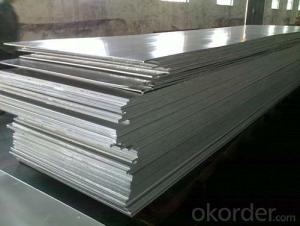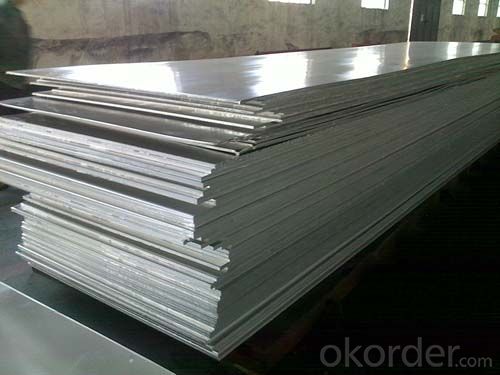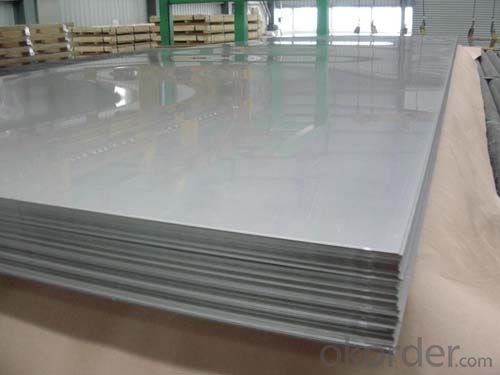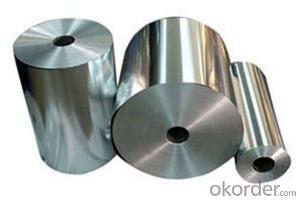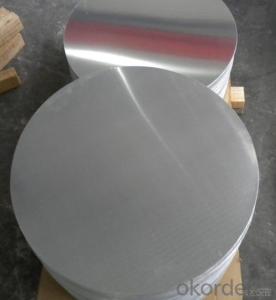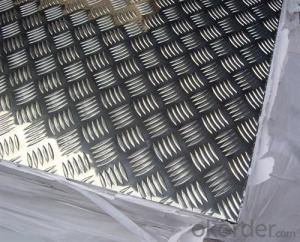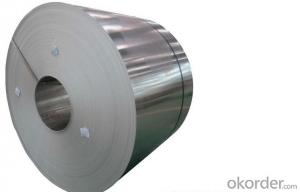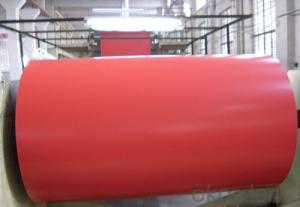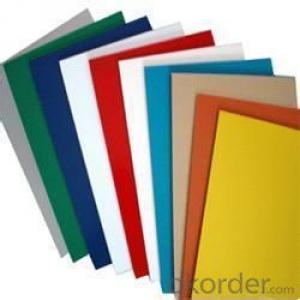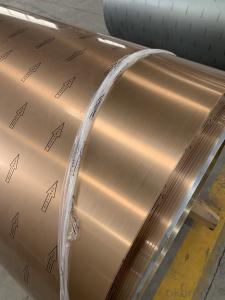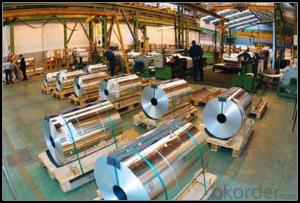Aluminum Coil Anodizing Company - Thick Aluminium Anodized Sheet for Different Usages
- Loading Port:
- China main port
- Payment Terms:
- TT OR LC
- Min Order Qty:
- 5 m.t.
- Supply Capability:
- 5000 m.t./month
OKorder Service Pledge
OKorder Financial Service
You Might Also Like
Specification
1. Description of Thick Aluminium Anodized Sheet for Different Usages
| Alloy No. | Thickness (mm) | Width (mm) | Length (mm) | Temper | |
| A1050,A1060, A1070,A1100 | 0.2-100 | 20-2200 | 20-8000 | O,H12,H22,H14,H16,H18, H24,H26,etc | |
| A3003,A3105,A3004 | 0.2-100 | 20-2200 | 20-8000 | O,H14,H18,H24,etc | |
| A5052 ,A5005,A5083,A5754 | 0.2-100 | 20-2200 | 20-8000 | O,H18,H24,H32,H34,H111,H112 ,etc | |
| A6061,A6082,A6063 | 0.2-200 | 20-2200 | 20-8000 | T4,T6, T651,etc | |
| A8011 | 0.2-100 | 20-2200 | 20-8000 | O,H12,H22,H14,H16,H18,H24,H26, etc | |
| Packing : Export wooden pallets. The bundle wegiht not exceed 2MT. Loading:by 1x20GP, 1X20GP can load about 18MT | |||||
| Standards:ASTM-B209. EN573-1, GB/T3880.1-2006 | |||||
| Quality of material: totally free from defects like white rust, oil patches, roll marks, edge damage, camber, dents, holes, break lines, scratches and free from coil set | |||||
2. Application of Thick Aluminium Anodized Sheet for Different Usages
Mainly used insigns, billboards, building exterior decoration, bus body, high-rise buildings and factories wall decoration, kitchen sink, lamp, fan leaves, with pieces of electronic, chemical equipment, sheet metal processing parts, deep drawing or spinning hollowware, welding parts, heat exchangers, bell surface and disk, plate, kitchenware, decorations, reflective devices, ect
3. Feature of Thick Aluminium Anodized Sheet for Different Usages
1.High temperature resistant
2.Weathering resistant
3.Scrubbing resistant
4.Sound insulation
5.Acid or alkali proof
6. Fireproof
7.Light weight material is easy to construct and install
4. Certificate:
SGS and ROHS(if client request, paid by client), MTC(plant provided), Certificate of Origin(FORM A, FORM E, CO), Bureau Veritas and SGS (if client request, paid by client), CIQS certificate
5. Image of Thick Aluminium Anodized Sheet for Different Usages
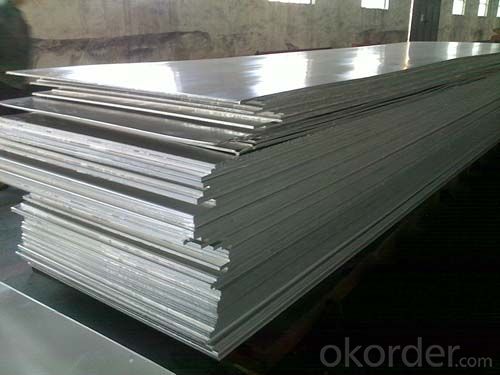
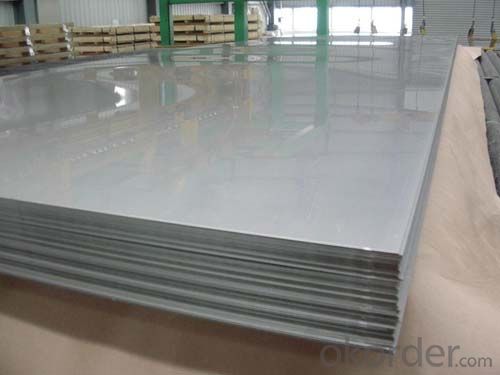
5. FAQ
1) What is the delivery time?
Dpends on actual order, around 20 days
2) What is the QC system:
We have QC staff of 20 persons and advanced equipment, each production is with MTC traced from Aluminum ingot lot.
3) What market do you mainly sell to?
Australia, America, Asia, Middle East, Western Europe, Africa etc
- Q: What specific conditions or precautions need to be taken into account when storing and transporting steel wires intended for coiling purposes?
- <p>Yes, there are special requirements for storing and transporting steel wires for coiling. These wires must be kept dry to prevent rust and should be stored in a cool, dry place away from direct sunlight or extreme temperatures. They should be handled carefully to avoid kinks or deformations. When transporting, it's important to secure the coils to prevent shifting during transit, which could cause damage. Additionally, the packaging should be robust enough to protect the wires from moisture and physical damage.</p>
- Q: What is the maximum length of aluminum coils?
- The maximum length of aluminum coils may vary due to multiple factors, including the specific manufacturing process, capabilities of equipment, and industry standards. However, in general, aluminum coils can range in length from a few hundred feet to several thousand feet. They find common use in applications like roofing, HVAC systems, and electrical wiring. Additionally, it should be noted that transportation and handling considerations may also impose limitations on the maximum length of aluminum coils.
- Q: What are the different forming processes for aluminum coils?
- Aluminum coils can be formed using various methods. These methods include: 1. The most commonly employed technique for forming aluminum coils is hot rolling. It requires heating the aluminum to a high temperature and then passing it between two large rolls to decrease its thickness. This process enables precise control over the coil's thickness and shape. 2. Cold rolling, a similar process to hot rolling, involves cooling the aluminum to room temperature before rolling it. Cold rolling is often preferred for producing coils with a smoother surface finish and stricter tolerances. 3. Continuous casting involves pouring molten aluminum into a continuous casting machine, which generates an uninterrupted strip of aluminum. The strip is then cooled and coiled to form aluminum coils. Continuous casting is commonly used for large-scale production. 4. Extrusion is a process that entails pushing aluminum through a die to create a particular shape or profile. The extruded aluminum is subsequently cooled and coiled to produce aluminum coils. Extrusion is frequently employed to manufacture coils with intricate shapes or profiles. 5. Slitting is a process used to cut aluminum coils into narrower strips. It involves passing the coil through a set of rotating blades that slice it into multiple smaller strips. Slitting is often utilized to produce coils with specific widths or for further processing. These are just a few examples of the various forming processes available for producing aluminum coils. The selection of a process depends on factors such as the desired shape, thickness, and surface finish of the coil, as well as considerations of production volume and cost.
- Q: This question asks for methods to preserve the lifespan of an aluminum coil.
- <p>To maintain an aluminum coil and ensure its longevity, follow these steps: Store the coil in a cool, dry place away from moisture and direct sunlight. Keep it clean by regularly removing dust and debris. Avoid scratching or denting the coil's surface. Handle the coil carefully to prevent damage. Use appropriate lubricants when necessary to reduce friction. Regularly inspect the coil for any signs of corrosion or wear and address these issues promptly. By following these practices, you can extend the life of your aluminum coil and maintain its quality.</p>
- Q: What are the common surface finishes for aluminum coils in the electrical industry?
- In the electrical industry, aluminum coils are commonly used for various applications such as transformers, motors, and electrical enclosures. These coils are often subjected to different surface finishing processes to enhance their performance and longevity. One of the most common surface finishes for aluminum coils in the electrical industry is anodizing. Anodizing involves creating a protective oxide layer on the surface of the aluminum through an electrochemical process. This layer not only provides excellent corrosion resistance but also improves the coil's durability and electrical insulation properties. Another popular surface finish is chemical conversion coating, also known as chromate conversion coating. This process involves treating the aluminum surface with a chemical solution to create a thin layer of protective coating. The coating not only provides corrosion resistance but also improves the adhesion of subsequent coatings or paints applied to the coil. Powder coating is another common surface finish used in the electrical industry for aluminum coils. It involves applying a dry powder onto the coil's surface and then curing it under heat to create a durable and attractive finish. Powder coating provides excellent resistance to chipping, scratching, and fading, making it ideal for applications where aesthetics and durability are important. In addition to these surface finishes, aluminum coils in the electrical industry may also undergo other treatments such as lacquering or painting. Lacquering involves applying a clear protective coating to the coil's surface, providing a glossy and protective finish. Painting, on the other hand, involves applying a colored coating to the surface for aesthetic purposes while also providing protection against corrosion. Overall, the choice of surface finish for aluminum coils in the electrical industry depends on the specific requirements of the application. Factors such as corrosion resistance, electrical insulation, durability, and aesthetics play a significant role in determining the most suitable surface finish for a given application.
- Q: Can aluminum coils be used for magnetic purposes?
- No, aluminum coils cannot be used for magnetic purposes as aluminum is not a magnetic material.
- Q: Are aluminum coils more cost-effective compared to other materials like copper?
- Yes, aluminum coils are generally more cost-effective compared to copper coils. Aluminum is cheaper and more abundant than copper, which makes it a more affordable option for various applications. Additionally, aluminum coils require less maintenance and have a longer lifespan, reducing overall costs in the long run.
- Q: Can aluminum coils be used in the production of automotive parts?
- Yes, aluminum coils can be used in the production of automotive parts. Aluminum is a lightweight and durable material, making it suitable for various automotive components such as body panels, engine parts, and heat exchangers. Its corrosion resistance and excellent thermal conductivity also make it a popular choice in the automotive industry.
- Q: What are the different types of aluminum coils available in the market?
- In the market, one can find various types of aluminum coils, each possessing its own distinct characteristics and applications. 1. Basic Aluminum Coils: These coils are simple and commonly used for general purposes. They have a smooth surface and find applications in industries like construction, automotive, and packaging. 2. Aluminum Coils with Enhanced Aesthetic Appeal: These coils are coated with paint or other finishes to improve their visual appeal and provide extra protection against corrosion. They are widely used in the manufacturing of building facades, signage, and decorative items. 3. Textured Aluminum Coils: These coils have a textured or patterned surface, which gives them a decorative appearance and makes them slip-resistant. They are often utilized in applications where both aesthetics and functionality are important, such as flooring, staircases, and decorative panels. 4. Anodized Aluminum Coils: Through the anodizing process, a protective oxide layer is formed on the surface of these coils. This enhances their resistance to corrosion and makes them suitable for outdoor applications, including architectural elements, electronic components, and the aerospace industry. 5. Pre-painted Aluminum Coils: These coils come with a pre-applied paint coating, eliminating the need for additional painting or finishing. They are frequently used in industries that require high-quality, durable, and consistently colored products, such as automotive, appliances, and electronics. 6. Aluminum Coils for Heat Transfer: Specifically designed for heat transfer purposes in air conditioning and refrigeration systems, these coils have high thermal conductivity. They are often made from alloy grades that offer excellent corrosion resistance in harsh environments. Considering the specific requirements and intended use of the aluminum coil is crucial before making a purchase. This ensures that the appropriate coil type is selected for the desired application, optimizing performance and longevity.
- Q: 94 f150. have the stock wheels which are weathered and dull. whats a good way to bring the shine back? some of the original coating is there ,most is gone. tried mothers aluminum wheel polish,does nothing. is it wise to use a wire wheel in a drill to get down to just the aluminum? the wheels are those with the center plastic cap with holes around the outer edge.thanks for any info
- I am not sure if you can sand them down an put a clear coat on them? I can say this is why you see older vehicles with plasti-dip coatings, to cover up the dings, curb rash and peeling clear coat, and the cost is lower than replacement. List your city and state. In my area there is wheel specialty shop that does tig welding repairs and will do a factory refinish. Look for one of those places. Or buy new rims and sell the old ones online.
Send your message to us
Aluminum Coil Anodizing Company - Thick Aluminium Anodized Sheet for Different Usages
- Loading Port:
- China main port
- Payment Terms:
- TT OR LC
- Min Order Qty:
- 5 m.t.
- Supply Capability:
- 5000 m.t./month
OKorder Service Pledge
OKorder Financial Service
Similar products
Hot products
Hot Searches
Related keywords
